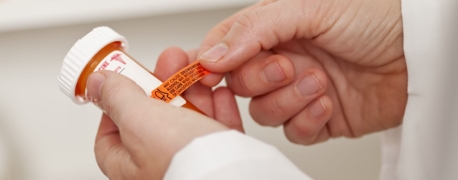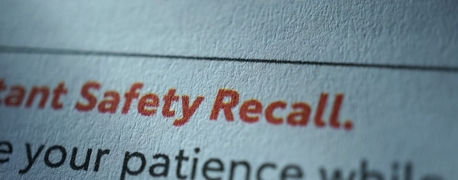The History of Transvaginal Mesh Lawsuits

Transvaginal mesh implants are supposed to be an effective cure for pelvic organ prolapse and stress urinary incontinence, but they do not always do this successfully. Pelvic organ prolapse or POP is when the pelvic muscles slide out of place into the vagina. Stress urinary incontinence is when there is an involuntary release of urine. Both of these conditions are common after childbirth, and are typically caused because the pelvic walls and muscles were weakened in some way.
While transvaginal mesh implants are supposed to help fix these medical conditions, they do not always do so. If the product worked as designed, it would be able to provide support to the pelvic walls and correct problems. Yet as far back as 1998, the FDA realized that this wasn't always the case. Back in that year, the FDA gave the Boston Scientific clearance to create ProtoGen products using the 501(k) route. This is a route for medical products that bypasses much of the testing that other products are required to go through. The FDA allows the 501(k) process for items that are already like a similar device that has undergone rigorous testing. Boston Scientific then created and began selling ProtoGen vaginal mesh implants to treat incontinence.
In June of 1998, the FDA inspected Boston Scientific after determining the problems related to vaginal mesh were worse than reported. Boston Scientific avoided citing certain cases of medical complications that were believed to be related to the product. In fact, there became reason to believe that only about 2/3 of all complaints regarding the products were being reported. Two months later in August, Boston Scientific declared that they didn't have substantial reasons to issue a recall and therefore avoided doing so. That same year, Johnson & Johnson also received clearance for Gynecare TVT to go through the 510(k) rout and cited Boston Scientific's ProtoGen as their predicate product.
In January of 1999, Boston Scientific finally decided to recall ProtoGen and claimed that the device outcomes are consistent with the company's standards of performance. The company received complaints of pain during sexual intercourse after the implants, and admitted that they had heard complaints of general discomfort and vaginal tissue erosion. While the recall was put in place, Johnson & Johnson's Gynecare TVT device was still allowed to be sold on the market.
By 2003, Boston Scientific had settled 738 lawsuits concerning their vaginal mesh devices. The amount in the case was not announced. In 2005-2007, the FDA reportedly received over 1,000 complaints from nine different manufactures that created vaginal mesh products. All complaints to the FDA spoke of the erosion of vaginal tissues and pain. Some people claimed that they had urinary problems after the implants, and others said that they developed a painful infection. Others say that SUI and POP recurred after the implant was put in place as a preventative measure. Reports also said that in some instances there was bowel, bladder, or blood vessel perforation during the procedure which led to complications in the future.
It wasn't until October of 2008 that the FDA final issued a Public Health Notification about the transvaginal mesh implants that are used to treat SUI and POP. The FDA says that the complications were rare but they could be serious. Meanwhile, the FDA received another 2,974 reports about complications with mesh implants in the next two years. People claimed that they were suffering from infection, vaginal erosion, painful sexual intercourse, organ perforation, and more. Also, people talked of vaginal scarring and shrinkage, emotional problems, neuromuscular difficulties and the persistence of illnesses that were supposed to be treated by the implants. The FDA estimated that about 300,000 women in the U.S. receive transvaginal implants.
In July of 2011, the FDA released an update on its previous Public Health Notification. This one announced that the complications were no longer considered rare, and that treating POP with mesh may not be nearly as effective as originally believed. In September of the same year, an FDA advisory panel recommended that the vaginal mesh implants used to treat OPO should be classified as a high-risk product, rather than a moderate-risk one. The reclassification would also force all manufactures of transvaginal mesh implants to construct studies that were based on human testing to determine the dangers of their product.
In January of 2012, the FDA ordered 33 manufacturers of similar products to conduct 3 year studies which will assess the impact that transvaginal mesh implants have on organ damage and other serious complications. Industry experts would need to look at the many complications that can happen as a result of the product. Also in 2012 industry manufactures were faced with over 650 lawsuits by women who claimed that they had suffered painful injuries as a result of the incident. The U.S. judicial panel determined that lawsuits should be consolidated in February, and since then personal injury attorneys have been coming to assist those in need.
If you have been the victim of a transvaginal mesh injury, then you shouldn't hesitate to seek compensation for your suffering. You deserve to be compensated for the agony that you have undergone, and shouldn't hesitate to start a lawsuit against the drug manufacturer who created the implant that has caused you so much injury. You can also sue if your loved one suffered a loss of enjoyment. With the right product liability attorney there to assist you, you have a better chance of achieving the finances that you deserve. Contact us today!


